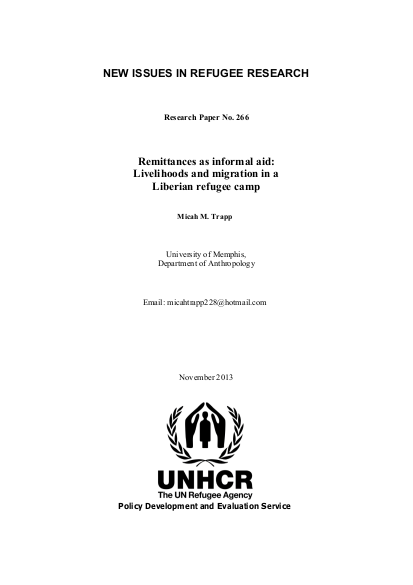
This paper examines the implications of the shift from a formal system of humanitarian aid to an informal, personal system of aid based on the use of transnational financial remittances. My analysis explores how remittances, which functioned as key components of refugee livelihoods, altered social structures and opportunities within the context of refugee migration. My primary argument is that remittances reinforced desires for refugee resettlement to the U.S. and exacerbated long-standing inequalities between Liberians with connections to “America” and those without.